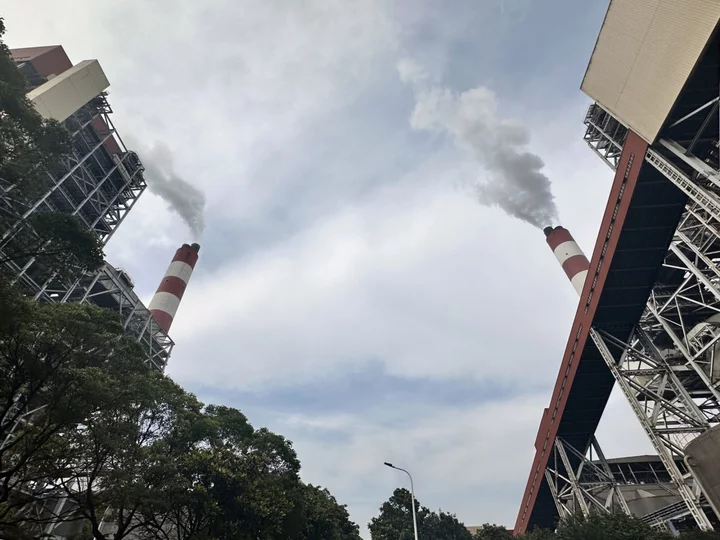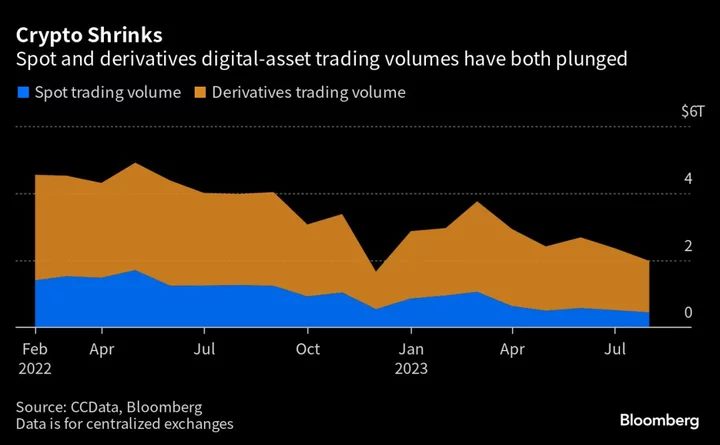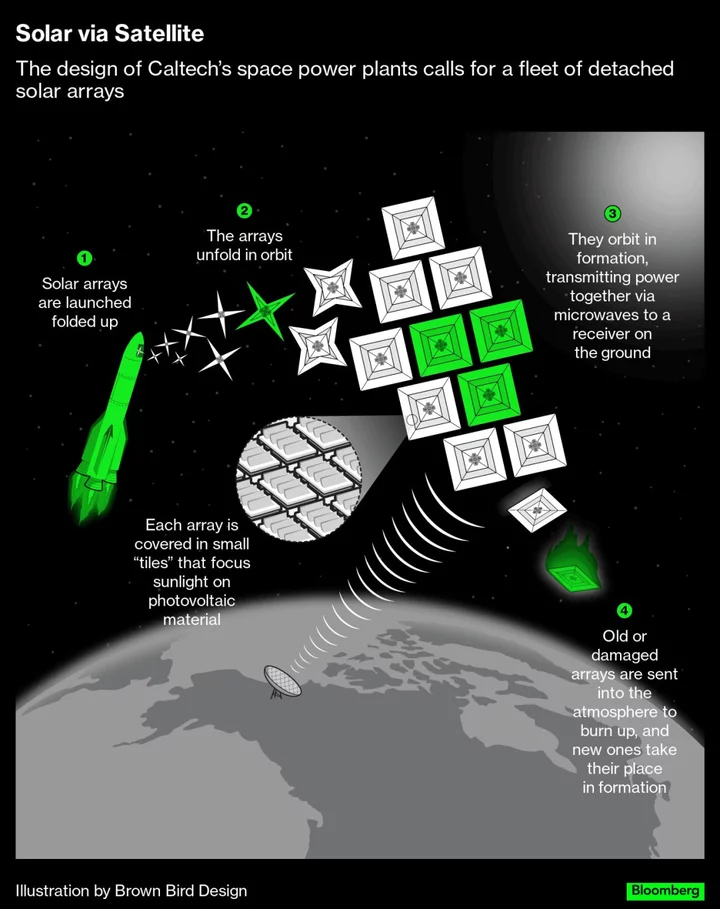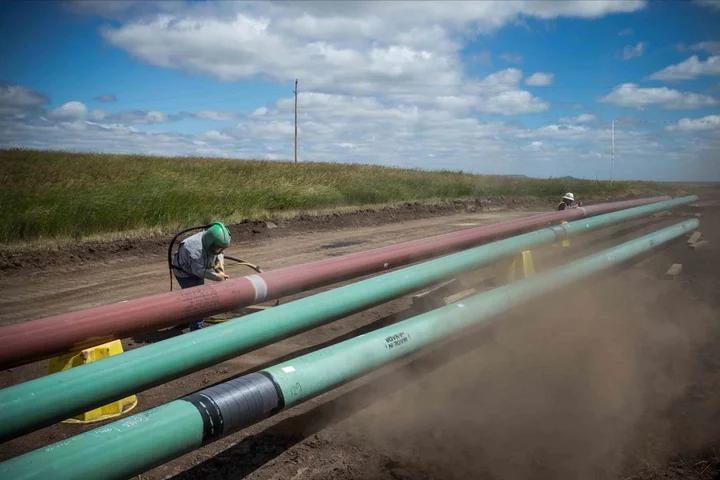Global energy-related emissions should peak next year — marking a key point for the renewables transition — but the shift will be too slow to meet 2050 net-zero targets, DNV said.
In the five years to 2022, renewables met just over half of new energy demand, with fossil-fuel usage still growing in absolute terms, the Norwegian risk management company said in a report. Limiting global warming to 1.5C looks less likely than ever, it said.
“Globally, the energy transition has not started, meaning that we are still adding more fossil fuels to the energy mix,” DNV Chief Executive Officer Remi Eriksen said in an interview. “Record emissions from fossil energy are on course to move even higher next year.”
Russia’s invasion of Ukraine and knock-on supply disruptions raised fossil-fuel prices and prompted more investment in new oil and gas projects. That drew greater attention to energy security, prompting governments to focus on locally sourced supply, DNV said. And while there has been a strong green push in Europe and North America, coal-fired generation is seen rising in nations like India.
The fallout of the war in Ukraine has also undermined natural gas’s role as a bridging fuel, Eriksen said. Gas supplies that once flowed to Asia are now being diverted to Europe, meaning countries such as China, Pakistan and Indonesia are also burning more coal.
Read: Big Oil Shows Support for Energy Transition But on Its Terms
Still, the energy transition is expected to take hold in the coming years, according to DNV.
Energy-related emissions by the end of the decade are forecast to be down 4% from now, and 46% lower by 2050, the report showed. By then, fossil fuels will account for 48% of energy generation, compared with 80% today.
“The oil and gas industry is going into unknown territory of declining demand,” said Sverre Alvik, director of DNV’s energy transition outlook. “It’s a totally new risk picture for the sector.”
Other forecasts from DNV’s report:
- Wind and solar-power production will expand ninefold and 17-fold, respectively, by 2050.
- Emissions from oil use should peak in 2025, and those from gas in 2027.
- The need for energy services will almost double by the middle of the century as the world population grows and becomes more prosperous.
- Still, final energy demand will rise only 10% by then due to greater efficiency.









